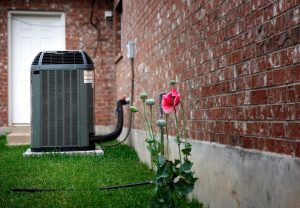 Many of the larger investments and devices you own are things you know how to care for. You may keep your phone in a case to protect it from cracks and scratches. You might have an antivirus running on your computer—and if you’re a real pro, you may even clean the fan. Hopefully, you take your car in for service every few months.
Many of the larger investments and devices you own are things you know how to care for. You may keep your phone in a case to protect it from cracks and scratches. You might have an antivirus running on your computer—and if you’re a real pro, you may even clean the fan. Hopefully, you take your car in for service every few months.
Your air conditioner, another investment in your home, your health, and your comfort deserves the same treatment. Today, we want to overview some of the best practices for those who know that an air conditioner in good condition will last for longer (or those just learning this today!).

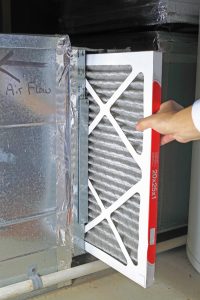 Every air conditioner has an air filter, and you’ve probably heard that you should change your air filter every month (or two). The reason for this, however, and the reason you have an air filter in the first place, is something that’s often misunderstood. When you don’t change the filter regularly, it can have serious consequences on the way your air conditioner works.
Every air conditioner has an air filter, and you’ve probably heard that you should change your air filter every month (or two). The reason for this, however, and the reason you have an air filter in the first place, is something that’s often misunderstood. When you don’t change the filter regularly, it can have serious consequences on the way your air conditioner works.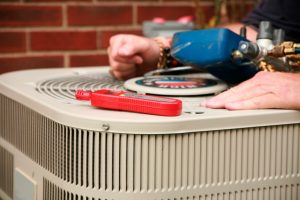 Of course, nobody wants to call a technician for
Of course, nobody wants to call a technician for 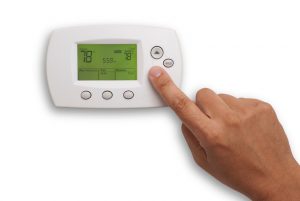 We’ve offered a lot of tips on how to stay cool and keep your energy bills low this summer, but we’d like to take a different approach today. Raising the temperature, using a ceiling fan, and scheduling routine maintenance are all steps that can help your air conditioner to perform at its best and reduce your monthly bills. But we’re here to look at all the ways you can add on to your air conditioner to save even more.
We’ve offered a lot of tips on how to stay cool and keep your energy bills low this summer, but we’d like to take a different approach today. Raising the temperature, using a ceiling fan, and scheduling routine maintenance are all steps that can help your air conditioner to perform at its best and reduce your monthly bills. But we’re here to look at all the ways you can add on to your air conditioner to save even more. We always do our best to
We always do our best to 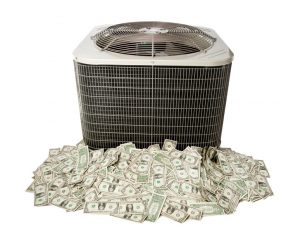 Summer is nearly here and that means another season of sun, fun, and…bills. You expect your heating costs to be high in the winter, but what’s going on with these high cooling costs? Air conditioners are complex machines with a lot of moving components that can certainly add to your energy bills in the summer, but if your bills seem to grow exponentially year after year, it’s time to think about what might be going wrong.
Summer is nearly here and that means another season of sun, fun, and…bills. You expect your heating costs to be high in the winter, but what’s going on with these high cooling costs? Air conditioners are complex machines with a lot of moving components that can certainly add to your energy bills in the summer, but if your bills seem to grow exponentially year after year, it’s time to think about what might be going wrong.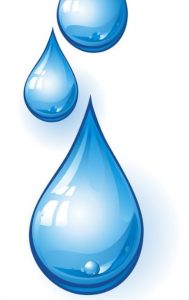 We want to make sure that your air conditioner runs as smoothly as possible throughout the summer. Sometimes, the smallest of user errors is the reason your system fails to function the way it is meant to, and our technicians want to make sure this doesn’t happen to you.
We want to make sure that your air conditioner runs as smoothly as possible throughout the summer. Sometimes, the smallest of user errors is the reason your system fails to function the way it is meant to, and our technicians want to make sure this doesn’t happen to you.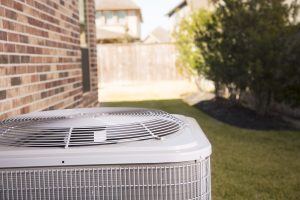 Before you start up your air conditioning system for the first time this season, there’s something you should know: your air conditioner is not indestructible! Many people forget that an air conditioner can break down when they need it most, but preventative care can go a long way in keeping your system healthy.
Before you start up your air conditioning system for the first time this season, there’s something you should know: your air conditioner is not indestructible! Many people forget that an air conditioner can break down when they need it most, but preventative care can go a long way in keeping your system healthy. Shopping around for new heating or AC equipment may prove tiresome, and some homeowners just resolve to buy whichever system best fits into their homes and budgets. However, this could prove problematic in terms of long term savings.
Shopping around for new heating or AC equipment may prove tiresome, and some homeowners just resolve to buy whichever system best fits into their homes and budgets. However, this could prove problematic in terms of long term savings.